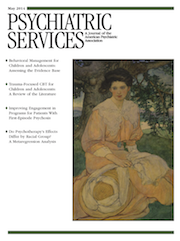Family Wellness Skills: Quick Assessment and Practical Interventions for the Mental Health Professional
Mr. Hernandez, the author of Family Wellness Skills, attempts to restore his favored and dated family wellness model by threading the concepts into the current recovery and treatment discourse. In an effort to create a hybrid model, the writer falsely presents the literature as systems based, person centered, and strengths focused and has consequently confused, intertwined, and distorted historical and contemporary philosophies. In addition, each page is riddled with clichés, which makes for a distracting read. Apparently, the author made deliberate efforts to include every coined phrase used in the helping fields.
This reader has significant concerns about the contents of this book and how the author views people and the helping professional. The author appears to have no insight into his constant tug-of-war between discussing pathology with paternal care language and offering lip service to a wellness model. For example, Mr. Hernandez describes clinicians as “working in the trenches” and warns they “must be effective” and of the importance of making “almost split-second” decisions about individuals. He writes, “We know some individuals are at the end of their rope.” If the landscape of the vocation is being described as fear filled and trenchlike, the patient’s lived experience is being judged. If clinician effectiveness and judgment are the basis for healing, it’s the clinician’s strength, not the patient’s, that is the focus. “End of their rope” is a phrase absent of hope, resiliency, and strength.
The author suggests a strengths-based and person-centered approach to treatment but then demonstrates no such philosophy during his descriptions of assessment and treatment planning. The described family wellness approach does not take contextual factors into consideration. Clinical examples are based on the individual, with very little consideration of the family unit. The assessments are for individual evaluation. The assessment guide categorizes people into four sections: No Sense of Self, Poor Sense of Self, Good Sense of Self, and Inflated Sense of Self. The author grossly overgeneralizes who falls into these categories, how they behave, and what they need for treatment (although he doesn’t necessarily seem to know how to repair these “sense of self” flaws). The structure does not allow for developmental ebb and flow or internal and external resources and stressors. His interventions focus on content of a problem rather than on process. Process work and unearthing patterns and relational roles and interplays are within the foundation of systems theory.
Mr. Hernandez appears to have patchworked all his favorite sayings and trendy business “buzz words” to create a “stone soup” of sorts. Clinically, there is no new or useful information to be found in this piece of literature. It could actually be viewed as a barrier to progress within the mental health profession. Unfortunately, his attempt to create the next generation of use for the family wellness model fails. I would not recommend this book as a resource to anyone in the mental health and wellness profession. After a thorough and painful read, the only validation I can point to comes from Mr. Hernandez’s comment that he “always wanted to write a book.” He did.



